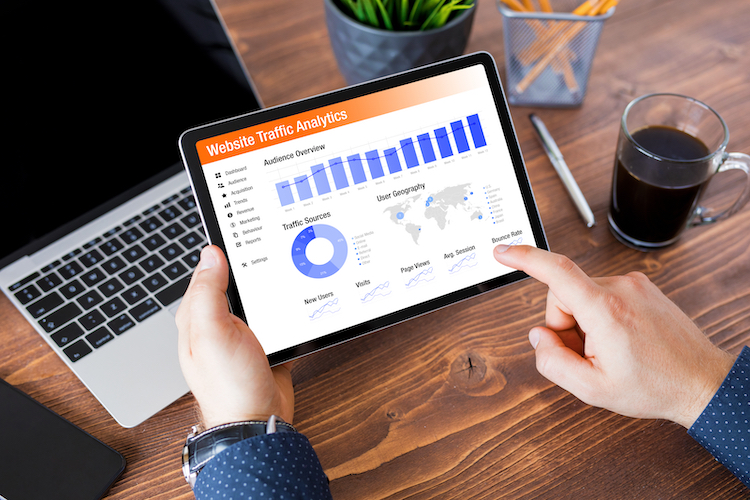With online selling becoming more fiercely competitive, Search Engine Optimization (SEO) can serve as a golden ticket to higher organic website visibility. But driving traffic to your website through SEO does not happen overnight. It requires a thorough analysis of SEO metrics to measure website success and make calculated decisions buttressed by results. Understanding these metrics will enable you to maximize SEO strategies to achieve higher rankings on search engine result pages and turn more clicks into sales. In this blog, we will dive into the SEO metrics that you must track.
Why You Need to Track SEO Metrics
By consistently monitoring metrics such as organic traffic, keyword rankings, conversion rates, bounce rate, and backlink profile, you can gain a deeper understanding of your website’s visibility, user behavior, and overall search engine performance.
This data-driven approach allows you to identify areas of improvement and make informed decisions to optimize your website for better organic visibility, increased traffic, and higher conversions. Moreover, tracking SEO metrics enables you to measure the impact of your SEO strategies, track progress over time, and justify your investments in SEO efforts.
Organic Traffic
Organic traffic refers to the web visitors arriving at your website through unpaid, natural search engine results. These visitors discover your website by typing relevant, often non-branded, keywords into search engines like Google, Bing, or Yahoo without clicking on sponsored ads at the top of SERPs. By tracking organic traffic and continuously improving your SEO efforts, you can attract targeted, relevant visitors to your website and drive sustainable growth for your online business.
Organic Keyword Rankings
Tracking your organic keyword rankings enables you to assess your website’s visibility in search engine results for targeted keywords. In general, a higher ranking for prominent keywords will also foster a greater sense of credibility, encouraging more clicks. By monitoring the changes in keyword rankings over time, you can identify opportunities for optimization, improve your content, and adjust your SEO strategy accordingly.
Imagine you work for an eCommerce website that sells sporting goods, including various types of bicycles. Your main goal involves ranking your product pages for high-value keywords like “mountain bikes,” “road bikes,” and “hybrid bikes.” You optimize your product pages, ensuring they have relevant and high-quality content. After a few weeks of monitoring, you notice your position for “mountain bikes” dropped from the 3rd position to the 8th position in the SERPs. This ranking decline indicates you must shift your focus to keywords that need a bit more love through re-optimized product pages and content centered around “mountain bikes.”
By keeping laser-focused on organic keyword rankings over time, you identified a decline in ranking for a valuable keyword and adjusted your SEO strategy accordingly.
Click-Through Rate
A Click-through rate (CTR) is a metric that measures the percentage of users who click on a specific link or advertisement compared to the total number of impressions received. In the context of SEO, CTR evaluates the effectiveness of organic search results and measures user engagement with your website in SERPs.
A higher CTR indicates that more users find your website’s listing in the search results compelling enough to click. This critical SEO metric signifies that your page’s title tag, meta description, and overall snippet capture users’ attention and generate interest. By optimizing these elements, you can increase your website’s visibility and drive more organic traffic.
Exit Pages
Exit pages represent the last page users view before leaving your website. Analyzing exit pages can provide insights into potential issues, like thin content or slow loading times, that lead visitors to exit. By identifying pages with high exit rates, you can investigate the causes, such as poor navigation, confusing calls-to-action, or irrelevant content, and take corrective actions to retain visitors and improve conversions.
Page Load Speed
Page load speed impacts both user experience and search engine rankings. Slow-loading pages can lead to higher bounce rates and decreased organic traffic. Optimize your website’s load speed aby compressing images, leveraging browser caching, and minimizing code. Tools like Google’s PageSpeed Insights can provide valuable insights and recommendations.
Backlinks and Referring Domains
Backlinks are links from other websites that point to your site. Monitoring the number of backlinks and referring domains, as well as their quality, helps you understand the authority and reputation of your website. Aim for high-quality backlinks from authoritative websites, as they can significantly impact your search engine rankings and organic traffic.
How to Track Your SEO Metrics
There are various tools and platforms available you can use to track key SEO metrics without hassle. Here are some popular options:
- Google Analytics: Google Analytics is a free web analytics tool provided by Google. It allows you to track a wide range of SEO metrics, including organic traffic, bounce rate, conversion rates, average session duration, and more. You can set up goals, create custom reports, and gain insights into user behavior on your website.
- Google Search Console: Google Search Console is a free tool that provides data and insights directly from Google’s search index. GSC allows you to monitor organic keyword rankings, click-through rates (CTR), impressions, and website indexing status. You can also identify crawl errors, submit sitemaps, and view backlink information.
- SEO Tools (e.g., SEMrush, Ahrefs, Moz): Dedicated SEO tools offer comprehensive features to track a wide range of SEO metrics. These tools provide in-depth keyword research, organic traffic analysis, backlink tracking, competitor analysis, and more. Popular options include SEMrush, Ahrefs, and Moz, which offer various subscription plans depending on your needs and budget.
Remember, different tools offer varying features and pricing plans. So, evaluate your specific needs and budget before choosing the most suitable tools for tracking your key SEO metrics. Additionally, using a combination of tools can provide a more comprehensive view of your website’s performance, allowing you to make informed decisions and optimize your SEO strategies effectively.
Let Premiere Creative Help You Monitor Your SEO Metrics!
Tracking essential SEO metrics will help you make data-driven decisions and optimize your website performance. Remember, regularly analyzing these metrics will help you stay ahead of the curve and drive sustainable organic growth for your website.
Need help monitoring your SEO campaign metrics? Call (973) 346-8100 to contact the SEO specialists at Premiere Creative.

